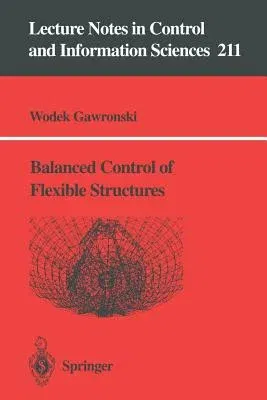Wodek Gawronski
(Author)Balanced Control of Flexible StructuresPaperback, 1 December 1995

Qty
1
Turbo
Ships in 2 - 3 days
In Stock
Free Delivery
Cash on Delivery
15 Days
Free Returns
Secure Checkout
Part of Series
Lecture Notes in Control and Information Sciences
Part of Series
Workshops in Computing
Print Length
265 pages
Language
English
Publisher
Springer
Date Published
1 Dec 1995
ISBN-10
3540760172
ISBN-13
9783540760177
Description
Product Details
Author:
Book Format:
Paperback
Country of Origin:
US
Date Published:
1 December 1995
Dimensions:
23.39 x
15.6 x
1.5 cm
ISBN-10:
3540760172
ISBN-13:
9783540760177
Language:
English
Location:
Berlin, Heidelberg
Pages:
265
Publisher:
Weight:
394.63 gm

